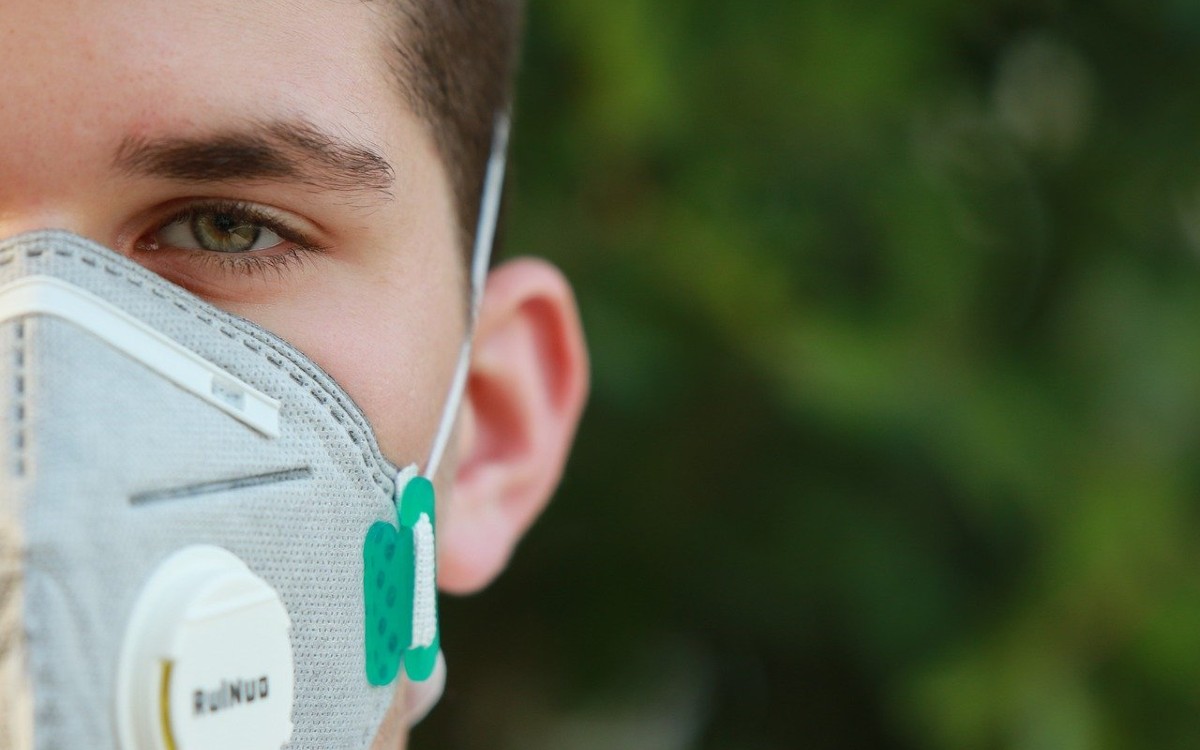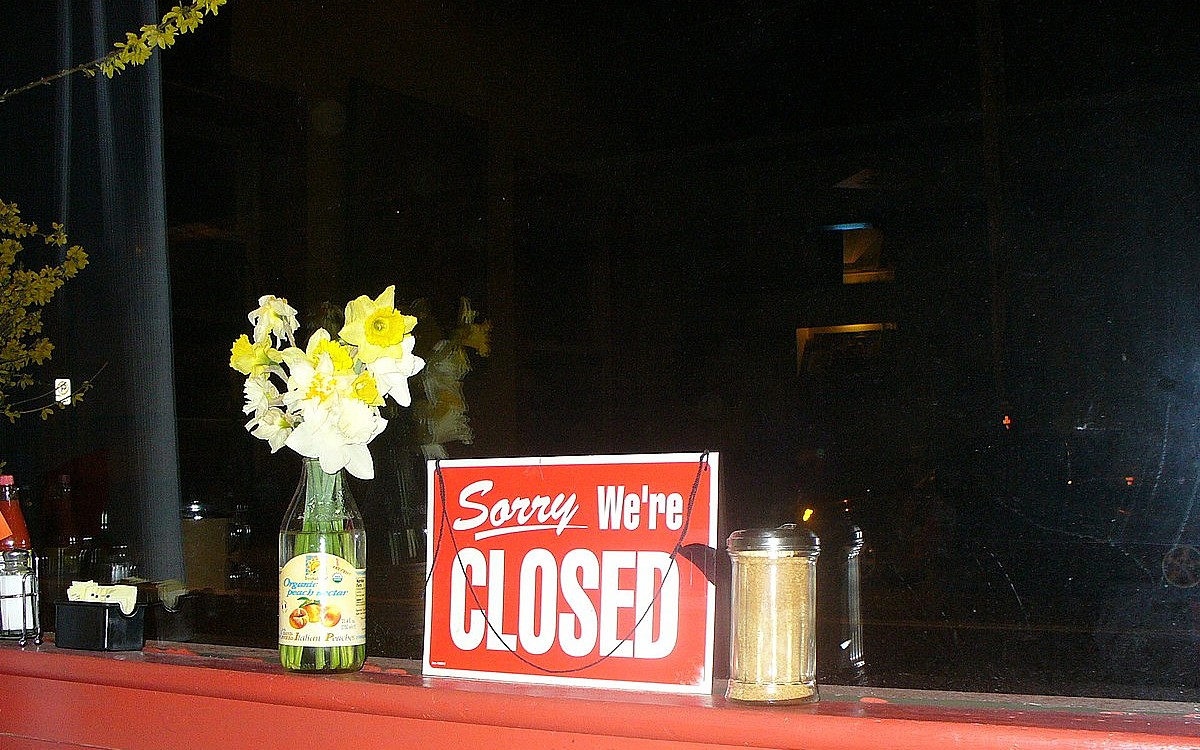INSIDE ISSUE 19.13 | March 27, 2020
 BIG STORY: Sidelined, state lawmakers still push for changes
BIG STORY: Sidelined, state lawmakers still push for changes
NEWS BRIEFS: S.C. to see $2 billion from feds for coronavirus response
COMMENTARY, Brack: Issue stay-at-home order now, governor
SPOTLIGHT: S.C. Education Association
MY TURN, Knapp: State’s economy will survive if small businesses survive
MY TURN, Estee: The state of South Carolina’s children
FEEDBACK: On the common good
MYSTERY PHOTO: Different view
DONATE TODAYFriends and readers,
 This coronavirus crisis is dealing a blow to everyone. But South Carolinians will get through it, just like we get through hurricanes and other disasters.
This coronavirus crisis is dealing a blow to everyone. But South Carolinians will get through it, just like we get through hurricanes and other disasters.
We’re proud to offer Statehouse Report for free. For more than a dozen years, we’ve been the go-to place for insightful independent policy and political news and views in the Palmetto State. And we love it as much as you do.
But now, we can use your help. If you’ve been thinking of contributing to Statehouse Report over the years, now would be a great time to contribute as we deal with the crisis. In advance, thank you.
— Andy Brack, editor and publisher
BIG STORY: Sidelined, state lawmakers still push for changes

By Lindsay Street, Statehouse correspondent | Lexington Republican Sen. Katrina Shealy said Gov. Henry McMaster is staying in touch with her and many of her Statehouse colleagues during the coronavirus pandemic.
“I’ve talked to him several times. He will just call and say, ‘What are you hearing?’” Shealy said.
The 170 members of the S.C. House and Senate are home until at least the week of April 7 as infections accelerate across the state. State-level response to the coronavirus pandemic rests in the executive office under a declared state of emergency.
With the legislature on hold,one of the “checks” on the executive branch is unable to weigh-in via legislation as executive orders are announced nearly bi-weekly, worrying some social justice advocates.
McMaster’s spokesman Brian Symmes and Chief of Staff Trey Walker did not respond to several requests to comment for this story.
“It’s really actually not safe for the House and Senate to meet right now,” Lancaster Democratic Rep. Mandy Powers Norrell said. “I have been so against legislating by executive order, but in this situation, we really, really need to.”

Beaufort Republican Sen. Tom Davis said the General Assembly’s role is “to be responsive to what the governor requests.” He called it “the appropriate response” to let the executive office call the shots during the crisis.
“You always have as a backstop the General Assembly and that is the ultimate guardrail,” he said. “We have a system that is designed to have those checks.”
Questions of executive power
But as executive orders mount, some civil liberties’ advocates have raised an alarm, particularly in light of the legislature not meeting.
McMaster’s March 23 executive order banning groups of three or more is flawed and threatens civil rights due to giving police discretion in enforcement, according to American Civil Liberties Union of South Carolina Director Frank Knaack. The group has called on the governor to rescind the order.
S.C. Appleseed Legal Justice Center Director Sue Berkowitz said overarching executive orders “can be pretty dicey,” especially since it is unsure when the legislature will reconvene. However, she said courts are still functioning in the state, so a case challenging an executive order? could always be filed.
“These are such extraordinary times. There clearly needs to be a balance of public health but without it totally infringing on civil liberties of people,” Berkowitz said.

Orangeburg Democratic Sen. Brad Hutto said South Carolina’s executive branch is the appropriate place to handle the unfolding coronavirus crisis but, “I disagree it is like a hurricane.”
“We need to revisit how we are managing this,” Hutto said. “It isn’t just going to (go on ) for three days and gone … It’s multifaceted. So I think the governor should task a czar or somebody who’s got a more comprehensive background in all of state government to manage us through the pandemic. He can’t micromanage all of this himself.”
What lawmakers want
Norrell said she was concerned about Lancaster Motor Speedway’s annual event March 21, and she called the governor to see about further restrictions on gatherings. She said she was pleased when the race canceled and the governor banned groups of three or more March 23.

She said she would like to see him “go further” in addressing the pandemic, such as allowing online notarization for legal services.
Two Pickens County Republicans, state Reps. Neal Collins and Gary Clary, urged McMaster to issue a statewide “stay-at-home” order to eliminate non-essential travel and business. Spartanburg Democratic Rep. Rosalyn Henderson-Myers called on McMaster to take executive action to stop medical providers from bill collections for 60 days. Hopkins Democratic Rep. Wendy Brawley is urging McMaster to waive penalties on vehicle taxes.
Legislature stays focused on budget

Charleston Republican Sen. Paul Campbell said his chamber is mostly focused on passing a budget after the disease ravages the state’s citizens and economy.
“We’ve got to get through it and find out what the bottom is,” he said, adding that will take many more detailed committee meetings to “completely re-do” the budget.
- The 2020-2021 budget won’t be the $10 billion spending plan the House passed in the beginning of March. An April 9 meeting for revenue forecasters is expected to provide a budget stress test on what could happen for annual spending. Read more.
The legislature needs to be working on a budget, Hutto said
Shealy said that while she’s unsure when the legislature will reconvene, “we’re going to eventually have to do something.”
- Have a comment? Send to: feedback@statehousereport.com
S.C. to see $2 billion from feds for coronavirus response

By Lindsay Street, Statehouse correspondent | South Carolina will receive nearly $2 billion to respond to the coronavirus pandemic, according to estimates from the National Conference of State Legislatures.
California and Texas have taken the lion’s share of the $150 billion set aside in the federal aid package expected to pass Congress today. Those states will receive $15 billion and $11 billion, respectively. See the March 25 state estimates here.
Most of the money from the package is unencumbered and its spending will likely be at the discretion of governors.
Beaufort Republican Sen. Tom Davis said he has been studying what the rescue package means for South Carolina.
“The way this thing has been structured is to provide flexibility to governors to use that money in a way that is tailored to what each state’s need is,” he said. “It will be the states that actually implement.”
In other news:
![]() Statehouse lobbyist, former governor’s son dies. The S.C. Statehouse lost a familiar face this week: Jack West of Camden. West died after being diagnosed with COVID-19. He is one of the nine deaths reported as of this week from the coronavirus pandemic in the state. West was a lobbyist and the son of former Gov. John West, who served in the 1970s and died in 2004. Read more. Lexington Republican Sen. Katrina Shealy and Charleston Republican Sen. Paul Campbell both said West spent time in their offices in the weeks prior to his diagnosis. Both senators report that they and their staff remain healthy, however.
Statehouse lobbyist, former governor’s son dies. The S.C. Statehouse lost a familiar face this week: Jack West of Camden. West died after being diagnosed with COVID-19. He is one of the nine deaths reported as of this week from the coronavirus pandemic in the state. West was a lobbyist and the son of former Gov. John West, who served in the 1970s and died in 2004. Read more. Lexington Republican Sen. Katrina Shealy and Charleston Republican Sen. Paul Campbell both said West spent time in their offices in the weeks prior to his diagnosis. Both senators report that they and their staff remain healthy, however.
SNAP benefits extended to those not working. The March 18 federal aid package included a provision to allow unemployed, able-bodied people to receive food stamps. This was an issue raised by S.C. advocates earlier this month since the state is unable to seek a waiver to suspend those workforce requirements. Read previous coverage.
Pew research advises against state-level stimulus. A Pew Research analysis released this week said state fiscal policy is “typically not effective in boosting short-term economic growth because of the need to balance budgets.” It said state governments “play a pivotal role in determining the country’s long-term economic trajectory, in part by supporting educational initiatives, workforce training programs, and infrastructure investments.
S.C. budget good on reserves, needs work elsewhere. New research from the Center for Budget and Public Policy has listed South Carolina among the states “at or above necessary reserves” as a positive attribute to weather another recession. But the state is weak when it comes to jobless workers attaining unemployment insurance and the high level of higher education debt per household, the report said. The research was compiled in response to the pandemic. Read the report here.
Need all coronavirus resources in one place? S.C. Appleseed Legal Justice Center has launched a resource page to help the state’s poorest residents navigate benefits and programs available to them during the coronavirus pandemic. Click here.
Money going to S.C. District 6 for community health centers. The relief package passed by Congress March 18 included more than $500,000 for community health centers in the Midlands, according to a press release from U.S. Rep. Jim Clyburn’s office. The money is intended to help the rural health centers respond to the pandemic.
Top mentoring teachers recognized in state. The Rex Institute, in the College of Education at Winthrop University, announced this month eight outstanding mentoring teachers, who were selected from a large pool of nominated teachers from across the state. The winners are: Heather Harmon of Saluda County schools, Brooke Erving of Fairfield County schools, Karen Roof of Rock Hill schools, and Rachel Turner of Greenville County schools. Semi-finalists included: Anna Hasenkamp of Greenville County schools, Julie McDowell of Spartanburg County School District Six, Jana Moore of Union County schools, and Earleane Williams of Clover County School District.
- Have a comment? Send to: feedback@statehousereport.com
Issue stay-at-home order now, governor

By Andy Brack, editor and publisher | Gov. Henry McMaster must issue a tough stay-in-place order now to keep coronavirus from spreading more in South Carolina. He can’t wait any longer.
 Such an order will cause huge economic ripples throughout the state’s economy. But school isn’t open for another month. More people are getting sick. If we don’t nip this mess in the bud as much as possible now, the damage will be far, far worse when he is forced to issue an order later.
Such an order will cause huge economic ripples throughout the state’s economy. But school isn’t open for another month. More people are getting sick. If we don’t nip this mess in the bud as much as possible now, the damage will be far, far worse when he is forced to issue an order later.
“I have great faith in the people of South Carolina,” the governor said Thursday. “They follow rules. They’re respectful. They’re courteous. They’re gentle. They’re smart. They’re resilient. The things we have asked them to do, they are doing and doing very well.”
Yes, most South Carolinians are like that. Unfortunately, governor, responding to this disease isn’t about faith. It’s about science. It’s about listening to public health authorities and keeping people apart. A lot of South Carolinians are staying at home voluntarily, but there are far too many still in close contact.
Continuing with a voluntary approach won’t chill the clusters that are developing. Our state needs to go into time-out for two weeks to allow the virus to die down. To do otherwise will create more opportunities for the virus to spread. That must not happen because we don’t want 8,000 infected people in May, as predicted, who infect even more.
“Health over wealth needs to be the focus, in my opinion,” Greenville political analyst Chip Felkel observed. “We can recover financially. It won’t be easy. It will cause a lot of anxiety and, yes, people will be severely and adversely affected. But they won’t be dead.”
To respond to the crisis, the state legislature should redirect the bulk of a $2 billion surplus into programs to help small businesses stay afloat and hospitals to deal with the caring crisis ahead.
“Small businesses are the backbone of the country, and especially South Carolina,” Felkel said. “A program to help companies meet payroll and stay afloat, not necessarily flourish, would go a long way.”
Frank Knapp, head of the S,C. Small Business Chamber of Commerce, suggests the state augment a federal infusion of money into small businesses by delaying the filing of state employer payroll taxes.
“There should not be any refund checks sent to taxpayers this year,” he said. “We should be putting every state tax dollar we can into our hospitals to cover their COVID-19 operational costs. We should do this because of the health care needs but also because it will help keep health insurance rates from rising next year.”
Knapp also suggested using federal dollars to expand Medicaid, even if only for a year, because tens of thousands of newly laid-off workers won’t have health insurance or meet federal levels to qualify for health insurance subsidies. So they’ll be out in the cold, further exacerbating an unhealthy environment.
“Lack of health insurance results in unhealthy citizens, which threatens all of us,” Knapp said. “Plus, when the unemployed get sick and go to the emergency room, if they can get in, their uncompensated medical costs will be passed on to everyone else through higher insurance premiums.”
State Sen. Vincent Sheheen, a Camden Democrat whose home area has been hammered by the virus, urged increased testing for the virus so more data were available to make decisions. He also suggested “effective self-quarantine procedures for confirmed cases with minor symptoms supervised by local law enforcement.”
If you want to better understand the terrible toll of coronavirus, we suggest you read the terrifying story of a New York City woman who has been caring for her husband, wracked by the disease.
“Our world became one of isolation, round-the-clock care, panic and uncertainty — even as society carried on around us with all too few changes,” Jessica Lustig wrote March 24 in The New York Times.
As of Thursday, 22 states had statewide stay-at-home orders. Sooner or later, South Carolina will likely have one too. Let’s do it now so we can move beyond this disease’s crippling health and economic impact sooner.
- Have a comment? Send to: feedback@statehousereport.com.
S.C. Education Association
 The public spiritedness of our underwriters allows us to bring Statehouse Report to you at no cost. This week’s spotlighted underwriter is The South Carolina Education Association(The SCEA), the professional association for educators in South Carolina. Educators from pre-K to 12th grade comprise The SCEA. The SCEA is the leading advocate for educational change in South Carolina. Educators in South Carolina look to The SCEA for assistance in every aspect of their professional life. From career planning as a student to retirement assessment as a career teacher, The SCEA offers assistance, guidance, and inspiration for educators.
The public spiritedness of our underwriters allows us to bring Statehouse Report to you at no cost. This week’s spotlighted underwriter is The South Carolina Education Association(The SCEA), the professional association for educators in South Carolina. Educators from pre-K to 12th grade comprise The SCEA. The SCEA is the leading advocate for educational change in South Carolina. Educators in South Carolina look to The SCEA for assistance in every aspect of their professional life. From career planning as a student to retirement assessment as a career teacher, The SCEA offers assistance, guidance, and inspiration for educators.
- Learn more: TheSCEA.org
KNAPP: S.C. economy will survive if small businesses survive

By Frank Knapp, special to Statehouse Report | The City of Charleston has implemented a shelter-in-place order. Columbia has done the same. There are even calls for Gov. Henry McMaster to do so for all of South Carolina.
As a result of all governments’ actions and instructions to citizens for containing COVID-19 from spreading, small businesses are in crisis.

How serious is it?
Goldman Sachs conducted a national survey of small businesses last week and found that about 51 percent of the owners said that under current conditions they would only be able to “operate for 0-3 months.”
The S.C. Small Business Chamber of Commerce conducted a poll of its supporters this week and found about 60 percent saying that, without an infusion of cash, their business would not survive the next 3 months.
A survey released this week by Businesses for Responsible Tax Reform of its network of small businesses found that 70 percent have lost 50 percent or more of their revenue while 40 percent in “shelter-in-place” regions and 30 percent in non-shelter-in-place areas have been forced to close.
Small businesses still open across the country are cutting costs primarily by reducing worker hours and layoffs. Other costs are harder to reduce, like payments for rent, utilities, insurance and existing loans.
Unemployment claims in the state jumped 1,600 percent in one week.
Many economists insist that we are already in a recession and no one knows how long it will take to revive the economy when the health crisis eases.
What experience from the recent Great Recession tells us is that it will be small businesses that will lead us out of this recession by creating jobs. But that won’t happen if we lose small businesses in the next three months at the rate indicated by surveys. Without our small businesses, we will be facing a very long road back, possible years, to a healthy economy.
Fortunately, Congress has recognized the need of small businesses for a fast, flexible and non-debt cash infusion to keep alive. The bipartisan $2 trillion stimulus package contains $377 billion for small businesses to obtain loans for operating expenses.
Small business owners in operation as of February 15 of this year can apply to SBA approved private lenders for soon-to-be-approved loans of up to 2 ½ times their average monthly payroll. These loans will be 100 percent backed by the federal government.
Normal loan underwriting, including proof of ability to repay the loan, will be waived and there will be no borrower or lender fees. Checks will hopefully be received by the small business in 7 days after a successful application submission.
The loans can be used for any business expense. However, if the money is used for payroll, rent, utilities or interest on a business mortgage; the small business owner will have that part of the loan forgiven making this money essentially a grant.
There will be no loan payments for the first 6 months. After that, only loan money used for non-forgivable expenses will require loan payments not to exceed 4 percent interest.
This small business loan program is intended for immediate relief. If this economic crisis goes on for too long, Congress will need to consider approving more assistance to small businesses.
This infusion of federal dollars to small businesses is not a handout.
It is an investment in keeping people working and getting a regular paycheck; in maintaining a more normal local business economy; and in supporting the emotional and psychological health of our citizens as they worry about the future.
And it is an investment in the essential local small business infrastructure we will need when we turn the corner on this crisis.
Frank Knapp is the president and CEO of the South Carolina Small Business Chamber of Commerce and Co-chair of Businesses for Responsible Tax Reform.
ESTEE: The state of South Carolina’s children

EDITOR’S NOTE: Today, March 27, is International Social Emotional Learning (SEL) Day. This piece by Al Estee outlines the challenges faced by the state’s children.
By Al Estee, special to Statehouse Report | At a time when we’re seeing a growing increase in the number of incidences of weapons being brought to schools and a 43 percent increase in suicide attempts for 10 to 24 year-olds, the General Assembly has spent the better part of this legislative session debating education bills that have omitted any recommended solutions to these and other critical mental health issues.

Our young people need our help. We must provide adequate support for those who are currently facing problems while simultaneously integrating social and emotional skills in academics to prevent future problems.
Growing up is tough. Growing up without the resources and the support you need is even tougher. State and national data show our children are engaging in unhealthy behaviors and our students, our teachers, and our schools need our help.
According to the Youth Risk Behavior Survey of S.C. high school students:
- 25 percent were currently drinking alcohol; 58 percent had tried alcohol.
- 19 percent were currently using marijuana.
- 15 percent had taken pain pills without a doctor’s prescription.
- 26 percent were offered, sold or given illegal drugs on school property.
- 39 percent had sex; 91 percent were unprotected .
- 18 percent had carried a weapon.
- 24 percent had been in a physical fight.
- 21 percent had been bullied on school property.
- 33 percent felt sad or hopeless.
- 19 percent considered suicide; 11 percent attempted suicide
- 250,000 S.C. children live in poverty, a known indicator of trauma,
Our students are suffering and our schools are faced with discipline problems. Yet neither House Bill 3759 nor Senate Bill S419 has addressed the underlying problem.
 We KNOW what works. For the sake of our kids, teachers, schools, future employers, our communities and our state, we must insist that we DO what works. Prevention is imperative.
We KNOW what works. For the sake of our kids, teachers, schools, future employers, our communities and our state, we must insist that we DO what works. Prevention is imperative.
Two hundred thirteen rigorous studies of Social Emotional Learning (SEL) in schools demonstrated that students receiving quality SEL instruction had:
- Fewer negative behaviors: Decreased disruptive class behavior, non-compliance, aggression, delinquent acts, and disciplinary referrals.
- Reduced emotional distress: Fewer reports of student depression, anxiety, stress and social withdrawal
- Improved attitudes and behaviors: Greater motivation to learn, deeper commitment to school, increased time devoted to schoolwork and better classroom behavior.
- Better academic performance: Achievement scores on average of 11 percent higher than students who did not receive SEL instruction.
- Evidence demonstrates that SEL improves mental health, social skills, behavior, academic achievement, and college and career readiness.
Proven effective SEL programs help students learn compromise, conflict resolution and problem-solving, and build empathy to help PREVENT school discipline problems, suicide, gun violence and bullying. EVERY CHILD needs these skills to succeed in school, form healthy relationships, and eventually excel in the workplace. Students with strong social-emotional skills are better able to cope with every-day challenges and will benefit academically, professionally and socially.
The General Assembly must act to ensure prevention measures are in place. Even though we know what works, we also know SEL programs are not available to all children in every grade and we know all programs are not equally as effective. To ensure every child, regardless of their zip code, has equal access to high quality social emotional development, the S.C. Department of Education must develop SEL standards and ensure SEL is implemented in all schools.
Social emotional learning that is integrated into academics is a cost-effective solution to a myriad of problems our young people and our teachers are facing. Our state can’t afford to wait for our students to get the help they need.
Al Estee is the founder and president of SEL4SC, which is housed at the Riley Center for Livable Communities at the College of Charleston.
On the common good
![]() To the editor:
To the editor:
Thanks. Sometimes it takes a common bad to call us back to being committed to the common good
— Holley Ulbrich, Clemson, S.C.
What do you think?
We love hearing from our readers and encourage you to share your opinions. But you’ve got to provide us with contact information so we can verify your letters. Letters to the editor are published weekly. We reserve the right to edit for length and clarity. Comments are limited to 250 words or less. Please include your name and contact information.
- Send your letters or comments to: feedback@statehousereport.com
Different view

Here’s a view of somewhere NOT in South Carolina. Where is it? Send your best guess to feedback@statehousereport.com. And don’t forget to include your name and the town in which you live.
Our previous Mystery Photo
 Our March 20 image, “A white flower among azaleas,” proved to be more difficult than we expected. It showed the white flower of a wild blackberry growing between azalea leaves. (We strongly believe it is actually a dewberry, a type of blackberry. The berries — if you can get them before the birds snatch them — tend to be smaller and sweeter than traditional blackberries and they bear fruit sooner.)
Our March 20 image, “A white flower among azaleas,” proved to be more difficult than we expected. It showed the white flower of a wild blackberry growing between azalea leaves. (We strongly believe it is actually a dewberry, a type of blackberry. The berries — if you can get them before the birds snatch them — tend to be smaller and sweeter than traditional blackberries and they bear fruit sooner.)
We got all sorts of other guesses for the berry’s flower, from specialty roses to dogwood. Only one reader, Don Clark of Hartsville, agreed it was a dewberry flower, writing, “Watch out for thorns.” Three readers of sister publication Charleston Currents — Bruce Jayne of Saluda, N.C., Carol Ann Smalley of Charleston and April Gordon of Mount Pleasant — also pegged the flower as that of a dewberry.
Jayne wrote: “The blossom appears to be a dewberry, a cousin to the blackberry which grows on a low-lying vine, and blooms earlier. There appear to be some berries forming to the right of the bloom.” Gordon added, “It’s a dewberry, a ground version of blackberries that blooms this time of year.”
Congratulations also to these readers who said the flower was of a blackberry or from a briar: Jay Altman and Elizabeth Jones, both of Columbia; David Lupo of Mount Pleasant; Henry Eldridge of Tega Cay; Charles Davis of Aiken; and George Graf of Palmyra, Va.
- Send us a mystery: If you have a photo that you believe will stump readers, send it along (but make sure to tell us what it is because it may stump us too!) Send to: feedback@statehousereport.com and mark it as a photo submission. Thanks.
ABOUT STATEHOUSE REPORT
Statehouse Report, founded in 2001 as a weekly legislative forecast that informs readers about what is going to happen in South Carolina politics and policy, is provided to you at no charge every Friday.
Meet our team
- Editor and publisher: Andy Brack, 843.670.3996
- Statehouse correspondent: Lindsay Street
Buy the book
Now you can get a copy of editor and publisher Andy Brack’s We Can Do Better, South Carolina! ($14.99) as a paperback or as a Kindle book ($7.99). . The book of essays offers incisive commentaries by editor and publisher Andy Brack on the American South, the common good, vexing problems for the Palmetto State and interesting South Carolina leaders.
More
- Mailing address: Send inquiries by mail to: 1316 Rutledge Ave., Charleston, SC 29403
- Subscriptions are free: Click to subscribe.
- We hope you’ll keep receiving the great news and information from Statehouse Report, but if you need to unsubscribe, go to the bottom of the weekly email issue and follow the instructions.
- © 2020, Statehouse Report, a publication of City Paper Publishing, LLC. All rights reserved.
- Read our sister publications: Charleston City Paper (every Wednesday) | Charleston Currents (every Monday)



Photo is Guggenheim Museum.